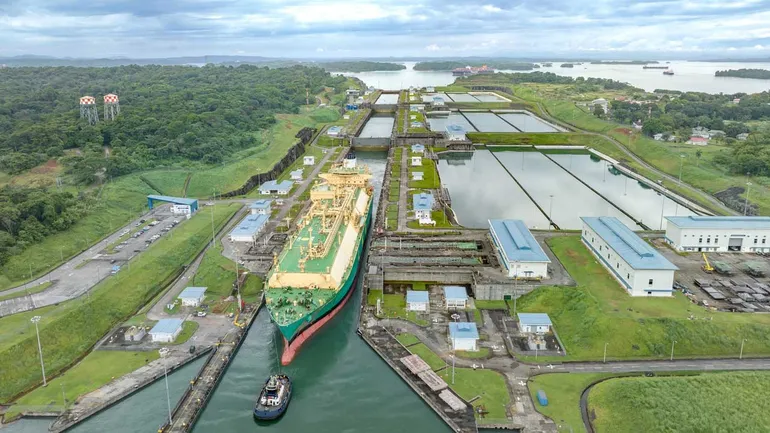Ocean carriers CMA CGM and MSC will implement surcharges for cargo shipped through the Panama Canal in response to the canal’s new booking reservation system.
Both surcharges will take effect in January and impact trade lanes between Southeast Asia and the U.S. East and Gulf Coasts, along with lanes between South America and the U.S. and Canada. The surcharges will apply to all cargo types.
Surcharges from MSC and CMA CGM
| Carrier | Trade Lane | Surcharge | Cargo Type | Effective Date |
|---|---|---|---|---|
| MSC | Southeast Asia, China, Korea and Japan to U.S. East and Gulf Coast | $40 per TEU | All cargo types | Jan. 1, 2025 |
| CMA CGM | South America West Coast to South America East Coast | $150 per TEU | All cargo types | Jan. 1, 2025 |
| CMA CGM | South America West Coast to Guyana North Brazil | $150 per TEU | All-cargo type | Jan. 1, 2025 |
| CMA CGM | South America West Coast to USA and Canada | $150 per TEU | All-cargo type | Jan. 5, 2025 |
SOURCE: MSC and CMA CGM
The ocean carriers said the surcharges will help offset increased costs resulting from changes the Panama Canal is implementing to its reservation system. The changes have led to a “significant increase” in CMA CGM’s operational costs, the France-based carrier said in a Dec. 18 press release.
The Panama Canal is a major shipping artery for grain exporters, and is the shortest voyage from the U.S. Gulf to major importers in East Asia. In marketing year 2023, approximately 29% of U.S. soybean exports, 18% of U.S. corn exports and 91% of U.S. sorghum exports transited through the Panama Canal, according to the American Farm Bureau Federation.
The Panama Canal has endured low water levels in recent years, leading to restrictions in the number of vessels that can travel through the major waterway and forcing shippers to divert some cargo.
As a result, the Panama Canal is making some changes to ensure cargo fluidity through a new booking reservation system called Long-Term Slots Allocation (LoTSA).
The booking system offers carriers the ability to secure vessel slot “packages” through a bid process. Those able to secure a long-term slot will be exempt from certain surcharges from the canal and are entitled to unlimited swaps and substitutions requested at least eight days prior to the required arrival time, according to the Panama Canal.
The announcements of additional carrier surcharges in the new year come as shippers face several other geopolitical shifts. For example, President-elect Donald Trump’s push for higher tariffs and the ongoing East and Gulf Coast port labor negotiations are risks for shippers that could lead to more diverted or frontloaded cargo and price increases for consumers.
Sarah Zimmerman contributed to this story.



